The Myerscough College Ag Net Zero Challenge – Westalls
Land management is amongst the largest contributors to climate change and there is an urgency for agriculture to transform from being a net emitter of carbon (CO2e) to a net sequester of carbon (CO2).
Carbon Farm Roadshow #4
Courtesy of Westalls, richard westall and graham and jane bancroft
The Myerscough College Ag Net-Zero Challenge is part of The Lancashire Colleges’ Strategic Development Fun Pilot, supporting colleges and local employers to work together to create a skilled workforce for a future low-zero carbon economy.
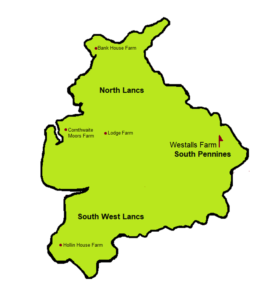
Farm Profile
The Westalls family in Briercliffe Lancashire, volunteered to participate in the Myerscough College Ag Net-Zero Challenge. They undertook a whole farm carbon audit to identify areas of improvement within their farm business to reduce carbon emissions.
Westalls
Halifax Road
Vriercliffe
Extensive grazing system
tHE CARBON AUDIT
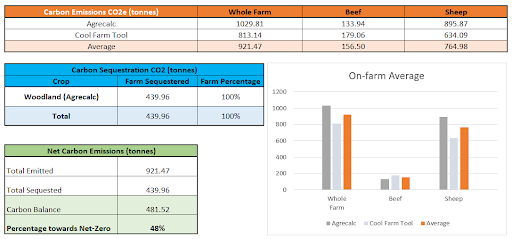
A carbon audit is an assessment of the emissions of carbon dioxide equivalents (CO2e) produced by each enterprise within a business and, where possible, looks at the sources of sequestration within the business. The carbon audit at Westalls was carried out by Carbon Metrics – a company that specialises in analysing and interpreting existing data and generating a targeted management plan to show how net-zero strategies can be achieved. The farm audit is calculated by using a carbon toolkit. There are currently over 70 toolkits available with no standard industry requirements for data. Therefore, in this case study, we used the average of two carbon audit calculators, Agrecalc and Cool Farm Tool, to produce the results.
Westalls emit 921.47T of CO2e, and their woodlands are sequestering 439.96T of CO2. The farm is a net emitter of CO2e from its farming activity, emitting 481.52T into the atmosphere each year and they are 48% towards becoming Net-Zero.
Strengths
The farm has a good annual sequestration of 439.96T of CO2. The majority comes from woodland, putting the farm at 48% towards Net-Zero.
The farm currently benefits from high levels of peatland carbon storage on the upland grounds that are reserved for sheep to graze. By farming in a less intensive system across this fragile habitat, the rate of peatland degradation minimizes, allowing it to remain as a stable store of carbon.
Additionally, the natural capital is built up by managing the 1,416 hectares of peatlands sustainably. The peatlands support a wide array of fauna across different habitats and enable biodiversity net gain.
Areas for Consideration
Carrying out an annual measurement of soil organic matter will help verify the amount of soil carbon and build up in the soil.
The farm’s established livestock farming enterprise can grow with sustainable intensification through good diet management of the beef and sheep herd.
Finishing the cattle sold for meat in a shorter time frame requires additional bought-in feeds; however, feeding more in a shorter time will reduce beef emissions. Furthermore, any increases in emissions are offset within the farm’s current carbon surplus. As a result, sustainable intensification can significantly reduce emissions while increasing outputs.
Carbon Opportunities
Healthy and functioning peatland habitats can be a natural solution to reducing greenhouse gas emissions. They hold a vast stock of carbon in their soils and can add more by sequestering carbon from the atmosphere. Restoring degraded and damaged peatland will reduce greenhouse gas emissions.
Conduct a soil test on their peatlands to show the amount of carbon sequestration year on year and indicate if the farm is Net-Zero. If a peatland requires restoration, this will significantly reduce emissions.
Focusing on fuel and fertiliser usage will reduce the farm’s carbon output. The farm could look to invest in renewables.
Benefits for the Business
By following the areas of consideration, the farm can expect an improved return on investment and a further fall in CO2e.
The farm has a very real possibility of leading the way in showing how agriculture can help lead towards Net-Zero.
As opportunities around carbon credits and soil sequestration become monetised, the farm is in an enviable position to be at the forefront of these concepts and pilots, which should add value to the business and help open new areas of income as the industry transitions away from direct payments.
Peatland Management
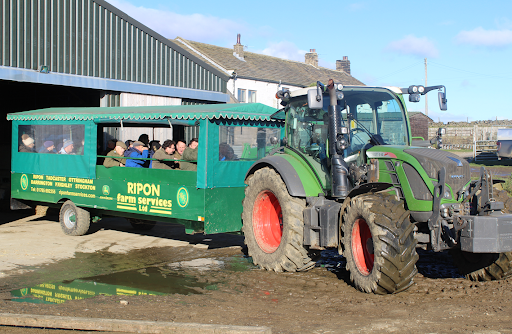
Westalls has a large area of peatlands that covers over 1,416 hectares. Peatland ecosystems can potentially absorb and store large amounts of carbon dioxide. Known as “carbon sinks,” they are ideal for tackling climate change. However, damaged peatlands conversely are a major source of greenhouse gas emissions, responsible for almost 5% of global anthropogenic CO2 emissions. This can be attributed mainly to historical drainage from agriculture and overgrazing, which has caused the disruption or loss of many carbon sinks.
Although we assume that all the farm’s peatland is sequestering, this will significantly reduce emissions if a peatland requires restoration. It is beneficial to conduct a soil test to show the amount of carbon sequestration year on year to indicate if the farm is Net-Zero.
Restoring any damaged peatland will significantly offset emissions, improve biodiversity, help to prevent flooding, and restart the peat-forming process. Peatland sites may need drain-blocking to rewet them using various techniques depending on the starting point. These include peat dams, plastic piling and bunding, plantation removal, pollution control, Sphagnum transfer and/or control, grazing, burning, water quantity, and quality.
Circular Economy
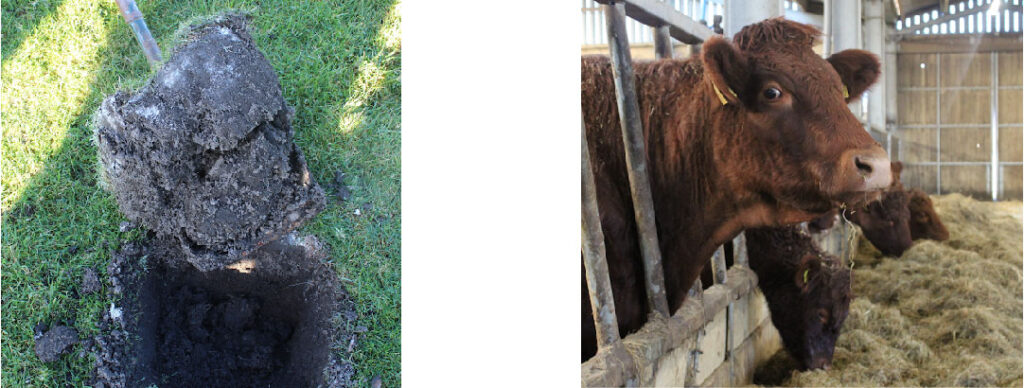
Westalls is committed to the Higher-Level Countryside Stewardship and the Peatland Code. These dictate stock rate changes and livestock removal over its lifetime and provide an innovative funding mechanism for restoring and investing in peatlands. Unfortunately, the world has been guilty of taking without replenishing stocks regarding natural capital.
“Natural capital is the stocks of assets in an ecosystem, which interacts to yield a flow of goods or services.” Natural Capital Coalition
The Benefits of Carbon Insetting. Morrisons have set an ambitious target to reach Net Zero with farmers who directly supply them by 2030. They are working closely with Westall Farm, offering support and guidance, and sharing best practices for using low food miles, low carbon footprint feeds, rearing different animal breeds, cutting down water and fertiliser use, planting trees, restoring peatland, and improving soil health.
“Our vision is to collaborate with local farmers and engage with consumers / supermarkets to supply beef and lamb from carbon neutral farms.” Graham Bancroft, Westalls
Subscribe!
Please enter your email below to keep up-to-date with the AG Net-Zero Challenge
